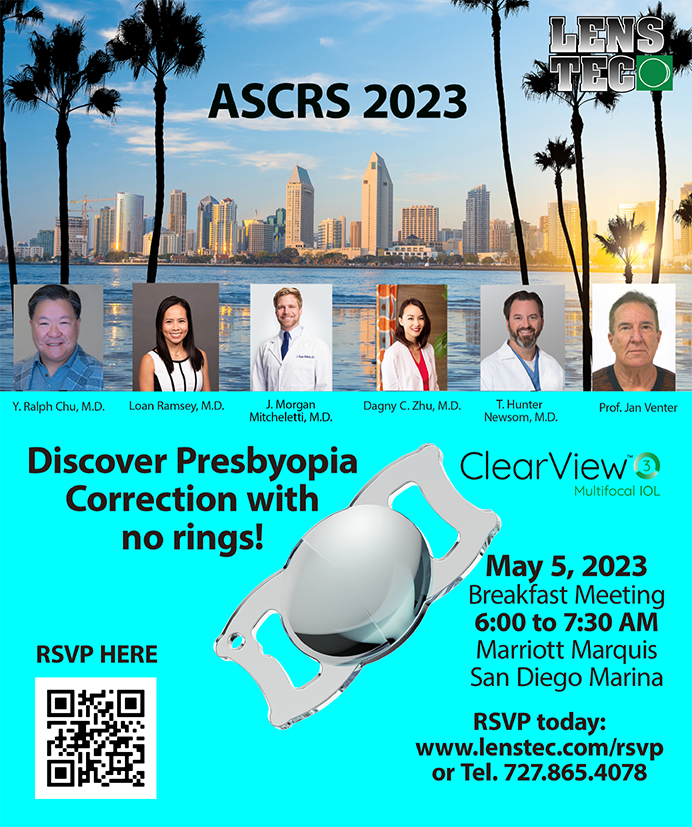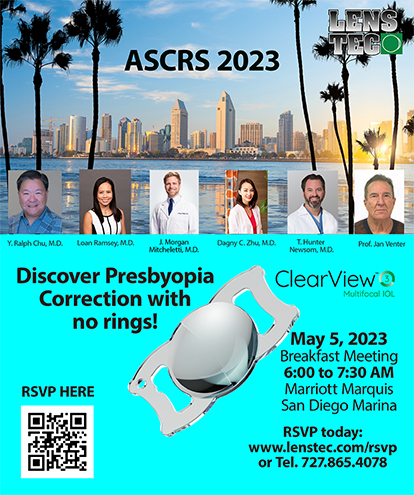How has the refocused national attention on LASIK affected ophthalmology practices?
The refocused attention on LASIK has both pluses and minuses. A plus is that surgeons can use this attention to emphasize that LASIK is a highly precise procedure that requires special expertise. Shopping for LASIK is not like shopping for a commodity like a loaf of bread; patients should not shop for the cheapest LASIK provider. A minus is that LASIK is now under scrutiny, which causes consumers to be more fearful of the procedure. I recommend that physicians combat this reaction by providing more information about why a patient is or is not a good LASIK candidate as well as the risks associated with the surgery. They should even offer this information on their Web sites. Patients always appreciate more versus less information.
How do you manage patients’ rising expectations?
When I was in college, I worked for Nordstrom department store, so I learned fairly early in life the importance of being in sync with the customer and not overpromising. Therefore, when I counsel patients, I always try to let them know that they should not expect perfection. There is, of course, a balance in the process. Presenting a procedure like Debbie Downer on Saturday Night Live is not a fair representation, either.
What was your most memorable surgical experience?
I once treated a young man with high hyperopia who traveled to my practice from Glasgow, Scotland, to have refractive lens exchange surgery. His eyes were so small that they looked like tiny, white marbles. The anterior chamber was extremely tight, and the iris was very difficult to control with nearly constant prolapse. I also had to use two IOLs. In the end, the surgery was a success. I felt an extra special connection to this patient, because, while I was an undergraduate, I spent a year studying at The University of Edinburgh in Edinburgh, Scotland.
What is unique about the way you run your facility in Beverly Hills?
My vision has always been that our facility would be the Four Seasons or Ritz-Carlton of medical practices. We offer highly personalized service, and our practice looks less like a medical office and more like a luxury spa or hotel, which immediately reduces patients’ anxiety. We also like to have fun with our patients in unconventional ways. For example, I personally write a quarterly newsletter to distribute to them. It usually has something in there to make them smile.
How will refractive surgery evolve in the near future?
When I look into my crystal ball, which I purchased at Costco for $19.99, I see phakic IOLs being used for lower and lower degrees of myopia and more surgeons performing those procedures in their offices, not in ambulatory surgery centers. I expect that excimer lasers will continue to become even more accurate. I also anticipate a complete cure for presbyopia within the next 20 years.


